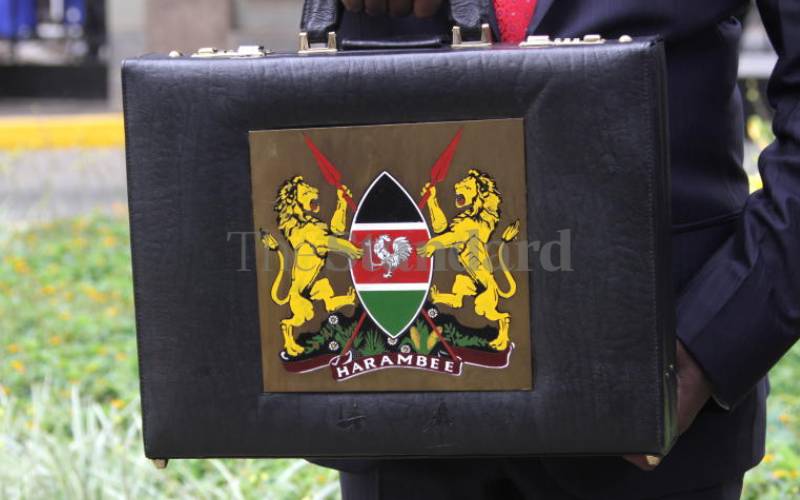×
The Standard e-Paper
Smart Minds Choose Us

Ukur Yatani holds up a briefcase containing the Budget for the 2020/22 financial year. [David Njaaga, Standard]
A lot has been said about the tremendous trust deficit the Jubilee administration’s projects have. Sorely lacking the Midas touch, most of Jubilee promises have turned, not to gold, but to objects of disappointment. The citizens have, for the past eight years, been the unwitting emptors of grossly inflated projects to the detriment of the country’s coffers.







